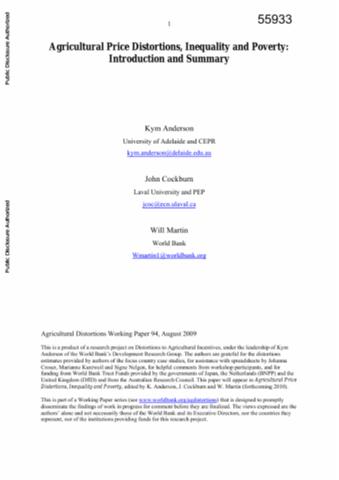Resource information
Reforms in recent decades have sharply reduced the distortions affecting agriculture in developing countries, particularly by cuts to agricultural export taxes and by some reductions in government assistance to agriculture in high-income countries, but international trade in farm products continues to be far more distorted than trade in nonfarm goods. This paper summarizes a series of empirical studies that focus on the effects of the remaining distortions to world merchandise trade for poverty and inequality, especially in developing countries. To obtain different insights into the various impacts, two global studies are undertaken using the World Bank's Linkage model, one multi-country study uses the Global Trade Analysis Project (GTAP) model, and ten country case studies are also included, each using a national economy-wide model. The Linkage model results suggest that liberalization will reduce international inequality, largely by boosting farm incomes and raising real wages for unskilled workers in developing countries, and will reduce the number of poor people worldwide by 3 percent. The analysis based on the GTAP model for a sample of 15 countries, and the ten stand-alone national case studies, all point to larger reductions in poverty, especially if only the non-poor are subjected to increased income taxation to compensate for the loss of trade tax revenue.


